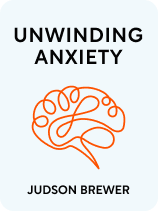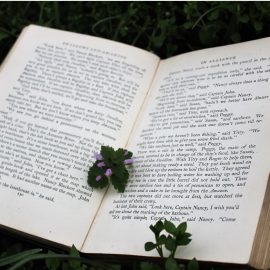

This article is an excerpt from the Shortform book guide to "Unwinding Anxiety" by Judson Brewer. Shortform has the world's best summaries and analyses of books you should be reading.
Like this article? Sign up for a free trial here.
What are the benefits of being mindful? How is your health affected by mindfulness?
According to Dr. Judson Brewer in Unwinding Anxiety, there’s a reliable way to recognize and dismantle anxiety and the harmful habits it spawns. He suggests mindfulness—the practice of paying close attention to the present moment without analyzing or judging it.
Here are the top benefits of practicing mindfulness.
Benefits of Being Mindful
Brewer says that once you’ve recognized a behavior loop and mindfully assessed its reward value, the key to changing the behavior is replacing it with something more rewarding. He argues that there are three benefits of mindfulness, an ideal replacement behavior:
First, it’s always available. You can be mindful regardless of your circumstances, location, or resources. You don’t need any particular item, substance, or environment in order to practice mindfulness.
(Shortform note: Here it’s important to distinguish between mindfulness and meditation, since the two are often conflated. As Brewer explains, meditation is one technique for practicing mindfulness, but it’s not the only technique. Whereas mediation often does require a specific environment (typically somewhere quiet to sit) and a stretch of uninterrupted time, you can practice mindfulness anytime and anywhere, even when engaged in demanding activities like driving, public speaking, intensive work, and so on.)
Second, it’s inherently rewarding—more so than whatever behavior you might be trying to change. Brewer says a benefit of being mindful is that it feels good in its own right, and that it promotes other positive feelings such as openness, creativity, and joy that are also rewarding.
Furthermore, unlike the behaviors it replaces, mindfulness’s reward value never fades. For instance, the first time you drink when you’re anxious, the alcohol might actually do a decent job making you feel relaxed. But over time, not only will you need to drink more to get the same effect, but intoxication itself will become less rewarding as its novelty wears off. (Shortform note: This is called hedonic adaptation—a phenomenon whereby we get used to pleasurable stimuli, which then makes them less pleasurable. According to experts, mindfulness helps with hedonic adaptation, too: It encourages you to savor your pleasurable experiences and it helps you notice when they’re getting stale.)
Third, it breaks the anxious habit loop instead of reinforcing it or creating new loops. Many anxiety-driven behaviors (like drinking) obscure the true causes of anxiety and give you bad habits and material consequences that spawn more anxiety. In contrast, one of the benefits of being mindful is that it has no such side effects. It causes no harm, doesn’t fuel habits, and short-circuits rather than reinforces the anxiety loop.
(Shortform note: You might notice that as a whole, Brewer’s approach to treating anxiety is circular. In other words, he says that you should develop mindfulness so that you can notice your anxious habit cycles, analyze them, and replace your anxiety-driven behaviors with… mindfulness. This circular logic isn’t necessarily a problem, and may in fact be a feature: If mindfulness is the tool for both detecting and breaking problematic cycles, then presumably the mindfulness you apply in step three will also help you discover additional problematic cycles, unwind those, and so on.)

———End of Preview———
Like what you just read? Read the rest of the world's best book summary and analysis of Judson Brewer's "Unwinding Anxiety" at Shortform.
Here's what you'll find in our full Unwinding Anxiety summary:
- How to recognize and counteract anxiety with mindfulness
- Why anxiety becomes is toxic if left untreated
- A three-step method for treating anxiety






